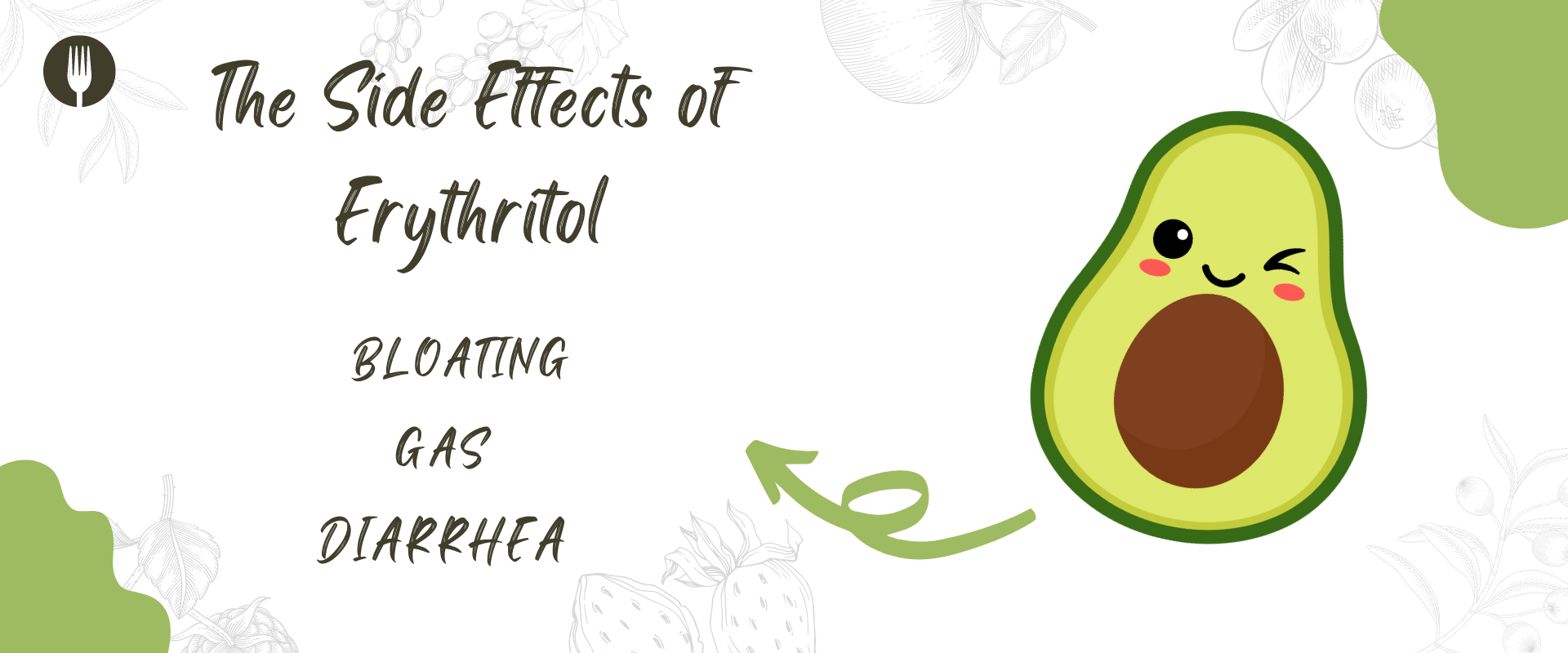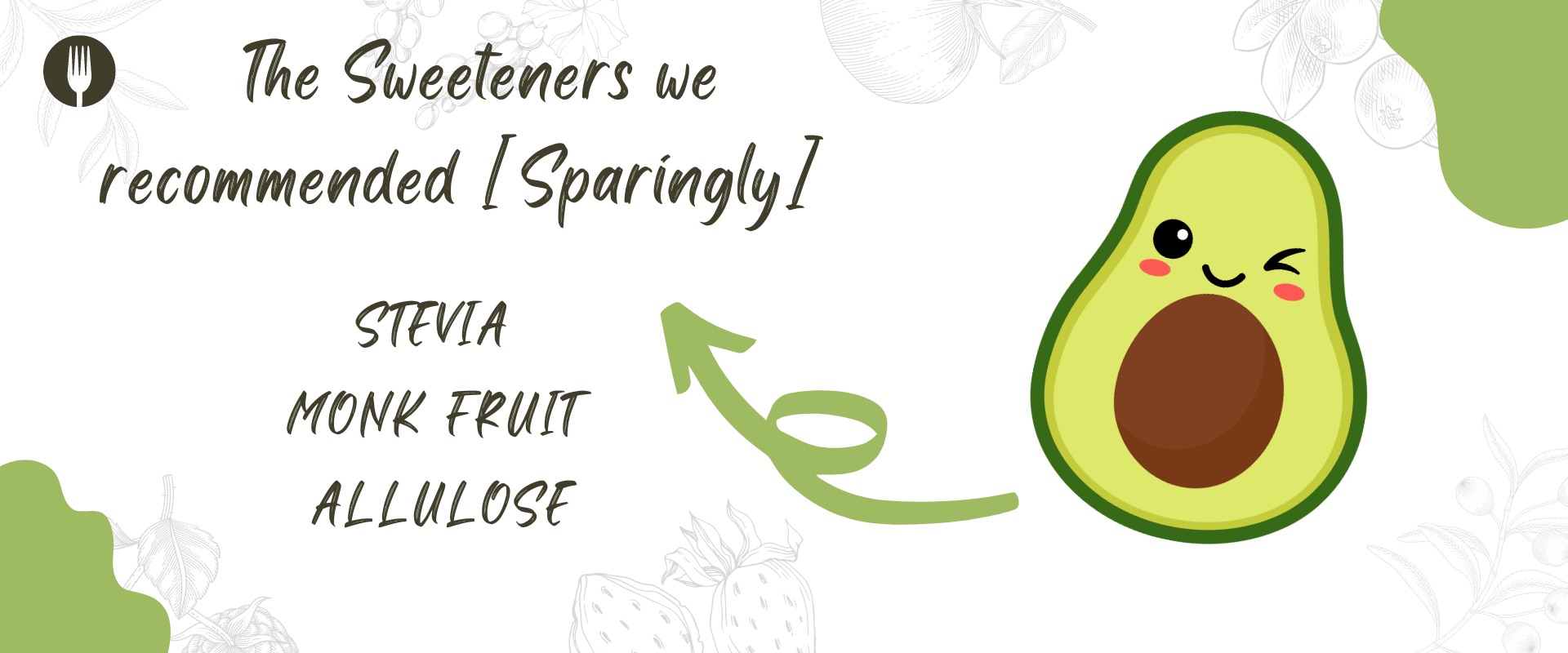Right present, many individuals are concerned about erythritol. They are concerned because this noncaloric, Keto-friendly sweetener has lately been linked to an increased risk of significant cardiac events in thousands of people.[1]
Should you be concerned as well? That depends on how you define anxiety.
It’s understandable to be careful with erythritol for the time being. However, if you’re freaking out because you ate a little cup of erythritol ice cream on Tuesday, you could be exaggerating.
As we answer the question, “What are the dangers of erythritol?” we’ll examine why caution (rather than panic) makes sense. We’ll also discuss the safety of different Keto sweeteners, our favorite sweeteners, and how to think about responsibly sweetening.
But first, let’s go over the fundamentals of erythritol.
What Is Erythritol?
Erythritol is a sugar alcohol, which is a sweet, indigestible carbohydrate. It’s roughly 70% as sweet as sugar and has almost no calories.[2]
Because sugar alcohols (xylitol, sorbitol, etc.) are not metabolized like carbs, they are low in calories. They travel through the large intestine to become food for gut bacteria rather than being absorbed by the small intestine and raising blood sugar.
Erythritol, on the other hand, functions in a different way. It absorbs through the small intestine, but it absorbs intact. Therefore, 90% of it is excreted by the urine.[3]
As a result, erythritol is nonglycemic (it does not raise blood sugar levels) and calorie-free. It’s also why we advocated erythritol for low-carb and Keto diets.
The New Erythritol Study
The erythritol study published in Nature Medicine in February 2023 is generating headlines.[4] Let us begin with the most often reported section: observational findings.
Over three years, the scientists studied thousands of patients and discovered that greater circulating erythritol levels were associated with an increased risk of heart attack, stroke, and cardiac death.
It’s important to note that correlation does not imply causality in these cases. Could anything other than erythritol consumption explain the association between increased erythritol levels and cardiac problems?
Possibly. In the presence of inflammation, oxidative stress, diabetes, and other cardiovascular risk factors, our bodies create erythritol.
Were the people with high erythritol consuming too many frozen sweets, or were they unwell? Is erythritol harmful to your health? These questions cannot be answered with observational data.
Yes, the scientists statistically adjusted for well-known risk factors for heart disease, but they did not evaluate how much erythritol each person naturally made. It’s a huge question mark.
But hold on; there’s more. According to the study, Erythritol enhances platelet aggregation in test tubes and mice. (More platelet aggregation increases the danger of blood clots, which can lead to a heart attack or stroke.)
And now for the kicker. Feeding eight individuals 30 grams of erythritol boosted blood levels 1000x above baseline (for days) and enhanced platelet aggregation after intake.
In summary, we have the following:
- Data from correlations relating circulating erythritol to cardiac events
- A mechanism (blood clotting) that might explain the correlation
- Human evidence shows that regular erythritol consumption increases the risk of blood clotting.
It’s not an unequivocal argument against sugar alcohol. However, it is disturbing enough to remove erythritol from the recommended list.
Is Erythritol Safe? And Erythritol Side Effects
The FDA considers erythritol to be GRAS (generally regarded as safe). This categorization, however, excludes the most recent discoveries.
As a result, until further notice, it’s generally best to avoid erythritol. The evidence is compelling enough to warrant caution.
Other sugar alcohols, such as xylitol, mannitol, and maltitol, have safety profiles comparable to erythritol.[5] we still need to learn more about these compounds.
We know that xylitol is toxic to dogs.[6] Even self-proclaimed cat people will find that upsetting.
Erythritol (and sugar alcohols in general) has gastrointestinal adverse effects. We’re talking about bloating, gas, diarrhea, and the amusing social implications that come with them.
Erythritol is frequently tolerated better than xylitol, sorbitol, and others. However, some people have adverse responses to any sugar alcohol.
Fortunately, various sugar replacements are available.

What About Other Keto Sweeteners?
Whether you’re Keto or just trying to eat healthier, cutting less on sugar makes a lot of sense. The less sugar you consume, the lower your risk of obesity and various chronic conditions.[7]
To limit our sugar intake, many of us resort to noncaloric choices. Among these Keto sweeteners are:
- Sugar alcohols, particularly nonglycemic erythritol
- Stevia
- Monk fruit
- Allulose
Sugar alcohols have already been discussed. Take precautions.
Stevia and monk fruit are zero-calorie plant sweeteners with a long history of usage.[8] The FDA considers them safe; however, (like with erythritol), our information is limited.
Some people are concerned that stevia is an endocrine disruptor that interacts with sex hormones. This phobia, however, is based on evidence from test tubes.[9] (Bathing sperm cells in stevia tells us little about consuming stevia.)
Finally, allulose is a GRAS sweetener found in raisins and jackfruit (pass the jackfruit, Agatha!), with no long-term research to back it up. It’s popular because it tastes and bakes like sugar, which may help burn fat after a meal.[10]
The Sweeteners We Recommend
Before the Nature Medicine research, the erythritol evidence was mainly good.[11] We, your local Carb Manager, endorse it.
Things shift. New information has arrived. We need to revise our perspectives. It’s a necessary component of remaining informed and intellectually honest.
While we no longer advocate erythritol, consuming small amounts of stevia, monk fruit, and allulose is safe. To be safe, though, use them sparingly.
Consider using stevia to sweeten your coffee 1-2 times a week. (Not daily.) During the holidays, make allulose cookies. (This does not happen every Friday.) As a special treat, try the monk fruit pudding. (This is not a post-dinner tradition.)
Understand that increased usage may be healthy—even sound. However, the erythritol findings underline the importance of caution in these topics.

We Don’t Need Sweeteners
People survived without sweets throughout most of human history. Early hominids did not consume stevia soda.
Sweet goods (like fruit) were a dense supply of calories. Therefore, we developed to appreciate them. And because finding these goodies was uncommon.
This takes us to a crucial point. The less often you eat sweet things, the more you’ll like them.
It’s called pleasure psychology. When you eat sweets regularly, your taste buds adjust.
But if you make them a treat, they’ll be precisely that. Scarcity improves everything.
Whole food flavors can also hint at sweetness to baked goods and hot drinks.
Anyway, you decide how to continue. Although the latest study does not indicate erythritol is dangerous, it is prudent to avoid this sugar alcohol in the future. We’ll keep you up to speed on erythritol (and other Keto sweeteners) so you can continue making educated health decisions.





![How Low Carb and Ketogenic Diets Boost Brain Health [Benefits & Effects]](https://eathealthyisgood.com/wp-content/uploads/2023/11/pexels-ella-olsson-1640773-1-1080x675.jpg)

0 Comments